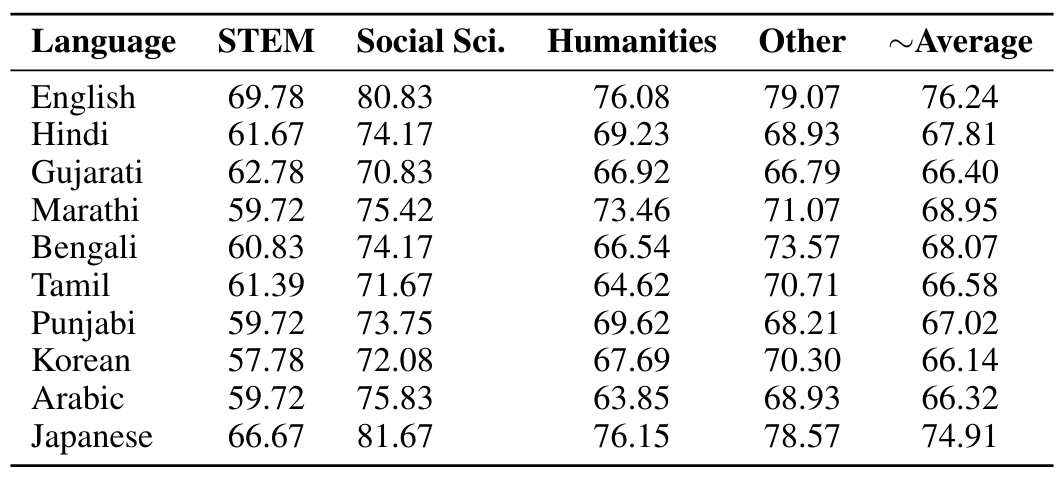and the distribution of digital products.
SUTRA-Online: Quantitative Evaluation for Real-Time, Factual LLM Queries
3 SUTRA Approach
4 Training Multilingual Tokenizers
5 Multilingual MMLU
5.1 Massive Multitask Language Understanding
5.2 Extending MMLU to Multiple Languages and 5.3 Consistent Performance across Languages
5.4 Comparing with leading models for Multilingual Performance
6 Quantitative Evaluation for Real-Time Queries
7 Discussion and Conclusion, and References
6 Quantitative Evaluation for Real-Time QueriesSUTRA models are connected, up-to-date, and hallucination-free models that provide factual responses with a conversational tone. They are online LLMs that use, infer, and process real-time knowledge from the internet and leverage it to provide the most up-to-date information when forming responses. SUTRA-Online models can accurately respond to time-sensitive queries, extending its knowledge beyond a static training corpus. Online models can therefore accurately answer questions like "Who won the game last night” or “What’s the most popular movie right now?”.
\ We evaluated the SUTRA models using the Fresh Prompt framework [Vu et al., 2023], developed by Google for assessing online LLMs [Press et al., 2022], and discovered that SUTRA-Online models surpass the competing search
\

\
![Performance Comparison of Language Models for handling fresh (realtime queries) with valid premise according to freshness LLM benchmark from Vu et al. [2023]](https://cdn.hackernoon.com/images/fWZa4tUiBGemnqQfBGgCPf9594N2-oj934ea.png)
\ engine-augmented models from Google, as well as OpenAI’s GPT-3.5 and Perplexity AI. The benchmark contains exhaustive questions covering various nuanced online scenarios covering never-changing, in which the answer almost never changes; slow-changing, in which the answer typically changes over the course of several years; fast-changing, in which the answer typically changes within a year or less. SUTRA performed well across majority of these scenarios, as shown in Table 9.
\
:::info Authors:
(1) Abhijit Bendale, Two Platforms ([email protected]);
(2) Michael Sapienza, Two Platforms ([email protected]);
(3) Steven Ripplinger, Two Platforms ([email protected]);
(4) Simon Gibbs, Two Platforms ([email protected]);
(5) Jaewon Lee, Two Platforms ([email protected]);
(6) Pranav Mistry, Two Platforms ([email protected]).
:::
:::info This paper is available on arxiv under CC BY-NC-ND 4.0 DEED license.
:::
\
- Home
- About Us
- Write For Us / Submit Content
- Advertising And Affiliates
- Feeds And Syndication
- Contact Us
- Login
- Privacy
All Rights Reserved. Copyright , Central Coast Communications, Inc.